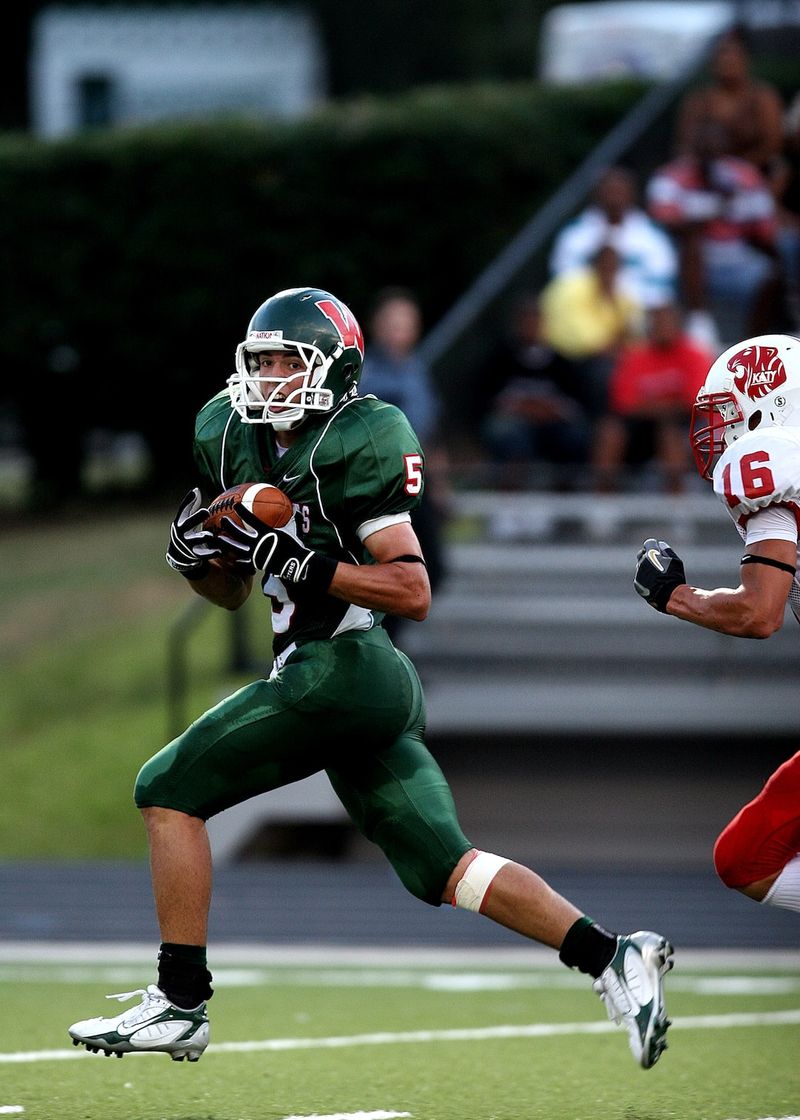Football Culture and the Dangers of Late Hits: The Case of Rakeim Ashford
The Incident
On the evening of September 18th, during a heated college football game between NC State and a visiting rival team, a shockwave reverberated through the stadium stands and across the nation. The cause of this upheaval was a late hit delivered by NC State player Rakeim Ashford that left his opponent crumpled on the ground, injured and in pain.
As the video of the incident went viral, it quickly became the topic of heated debate among sports enthusiasts, experts, and the general public alike. The incident has once again brought into focus the issue of late hits and the inherent dangers they pose to athletes on the field.
The Philosophy of Sportsmanship
Sports have long been considered a way to promote healthy competition, discipline, and teamwork, as well as to entertain spectators. Central to the philosophy of any sport is the concept of sportsmanship, which emphasizes respect, fair play, and empathy towards fellow competitors. In its purest form, sportsmanship places greater value on the pursuit of excellence and the integrity of the game than on the outcome itself.
When a player deliberately inflicts harm on an opponent through a late hit, it not only disregards the principles of fair play but moves the game beyond the boundaries of healthy competition. Late hits not only endanger the well-being of players but also foster a toxic atmosphere that undermines the positive values sports are meant to uphold.
The Culture of Football
Football, especially college football, holds a unique cultural standing in the United States. It is deeply ingrained in the fabric of American society and often heralded as a symbol of strength, perseverance, and teamwork. However, this cultural reverence can sometimes manifest itself in the form of excessive aggression, leading players and teams to prioritize the quest for victory above all else.
The pressure to win can fuel reckless and dangerous behavior, such as late hits. While the rules of the game provide a framework for ensuring player safety, the culture of football can sometimes push the boundaries of those regulations. The incident involving Rakeim Ashford highlights the need for a critical examination of the inherent aggression within the sport and the measures in place to address it.
Addressing the Issue
The responsibility for preventing late hits and ensuring player safety lies not only with the players themselves but also with coaches, referees, and the governing bodies of the sport. It is imperative that all stakeholders, from youth leagues to professional organizations, commit to fostering a culture of respect, fair play, and adherence to the rules.
Coaches have a crucial role to play in shaping the values and behavior of their players. By prioritizing sportsmanship and instilling a respect for the physical and mental well-being of opponents, coaches can help reduce the occurrence of late hits. Referees must enforce existing rules to deter dangerous behavior, while also penalizing any transgressions swiftly and consistently.
Governing bodies, such as the NCAA, should continually evaluate and update their rules to reflect developments in the sport and to prioritize player safety. This includes revisiting penalties for late hits and providing clearer guidance on what constitutes acceptable contact during a game. Additionally, education and awareness campaigns can help raise consciousness about the dangers of late hits and the importance of fair play.
Conclusion
The shocking late hit by Rakeim Ashford during the NC State football game has ignited discussions about the philosophy of sportsmanship, the culture of football, and the urgent need to address the issue of dangerous hits. While football undoubtedly holds a cherished place in American culture, it cannot come at the expense of player safety and the integrity of the game.
By reinforcing the values of respect, fair play, and adherence to the rules, football can continue to be a powerful tool for personal growth, camaraderie, and entertainment. It is the collective responsibility of players, coaches, referees, and governing bodies to work towards minimizing the risks associated with late hits. Only through a vigilant commitment to player safety can football retain its status as a beloved sport while avoiding the dark shadow cast by unnecessary injuries and dangerous behavior.

<< photo by Keith Johnston >>
The image is for illustrative purposes only and does not depict the actual situation.
You might want to read !
- Exploring the Greatest Week 1 Performances in Georgia Football History
- “Betting on the Battle: Analyzing the Braves vs. Dodgers Faceoff – September 1”
- Three Insights from N.C. State Football’s Triumphant Season Opener
- Minnesota’s Stunning Upset Shakes Up College Football: Week 1 Recap
- Exploring the Gridiron Clash: Minnesota vs. Nebraska – Prediction, Odds, and Picks
- The Evolution of College Football Viewing: Streaming Kent State at UCF Live
- Rivalry Renewed: NC State Takes Commanding Lead Against UConn [Live Updates]
- “Can UConn Defy Expectations Against the NC State Wolfpack? A Game to Watch”
- The Rivers’ Roster Grows: Former NC State QB Philip Rivers and Wife Tiffany Expecting 10th Child
- A Controversial Commotion: Unraveling the Arrest of Ruby Franke, the 8 Passengers Family Vlogger
- Breaking Down the Patriots’ Acquisition of Former Panthers QB Matt Corral
- Examining the Potential Impact of the Patriots Signing Former Panthers QB Matt Corral




